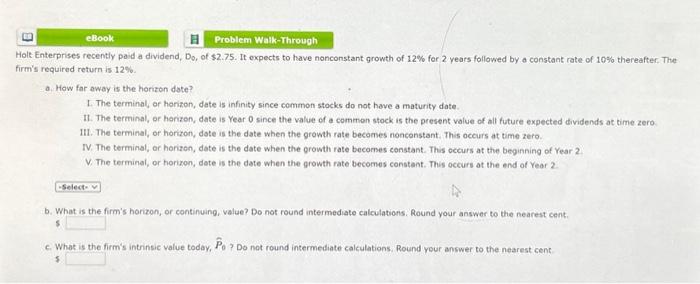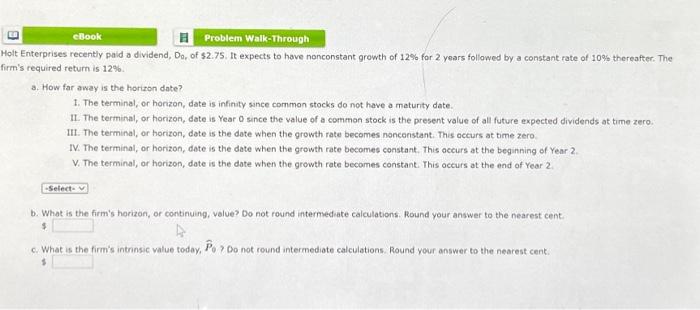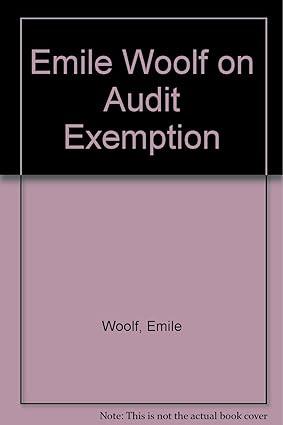Holt Enterprises recently paid a dividend, D0, of $2.75. It expects to have nonconstant growth of 12% for 2 years followed by a constant rate of 10% thereafter. The firm's required return is 12%. a. How far away is the horizon date? 1. The terminal, or horizon, date is infinity since common stocks do not have a maturity date. 11. The terminal, or horizon, date is Year 0 since the value of a common stock is the present value of all future expected dividends at time zero 111. The terminal, or horizon, dote is the date when the growth rate becomes nonconstant. This occurs at time zero. IV. The terminal, or horizen, date is the date when the growth rate becornes constant. This occurs at the beginning of Year 2. . The terminal, or horixon, date is the date when the growth rate becomes constant. This occurs at the end of Year 2. b. What is the firm's horizon, or continuing, value? Do not round intermediate calculations. Round your answer to the nearest cent. s. c. What is the firm's intrinsic value today, P^0 ? Do not round intermediate calculations. Round your answer to the nearest cent. 5 olt Enterprises recently paid a dividend, O0, of $2.75. It expects to have nonconstant growth of 12% for 2 years followed by a constant rate of 10% thereafter. The rm's required return is 12%. a. How far away is the horizon date? 1. The terminal, or honzon, date is infinity since common stocks do not have a maturity date. II. The terminal, or horizon, date is Year 0 since the value of a common stock is the present value of all future expected dividends at time zero. III. The terminal, or horizon, date is the date when the growth rate becomes nonconstant. This occurs at time zero. IV. The terminal, or horizon, dote is the date when the growth rate becomes constant. This occurs at the beginning of Year 2. V. The terminal, or horizon, date is the date when the growth rate becomes constant. This occurs at the end of Year 2. b. What is the firm's horizon, or continuing, value? Do not round intermediate calculations. Round your answer to the nearest cent. $ c. What is the firm's intrinsic value today, P^0>D0 not round intermediate calculations. Round your answer to the nearest cent








